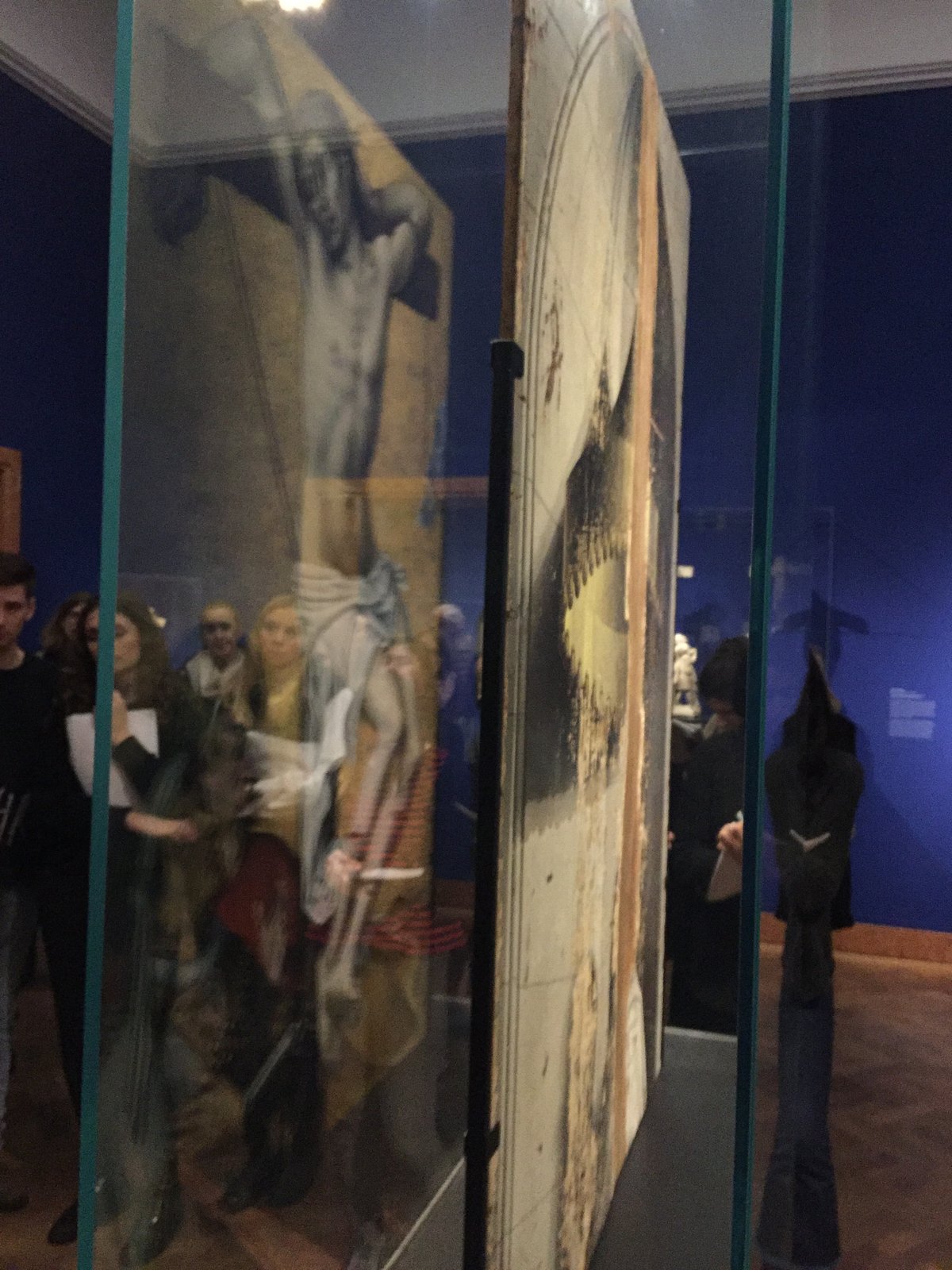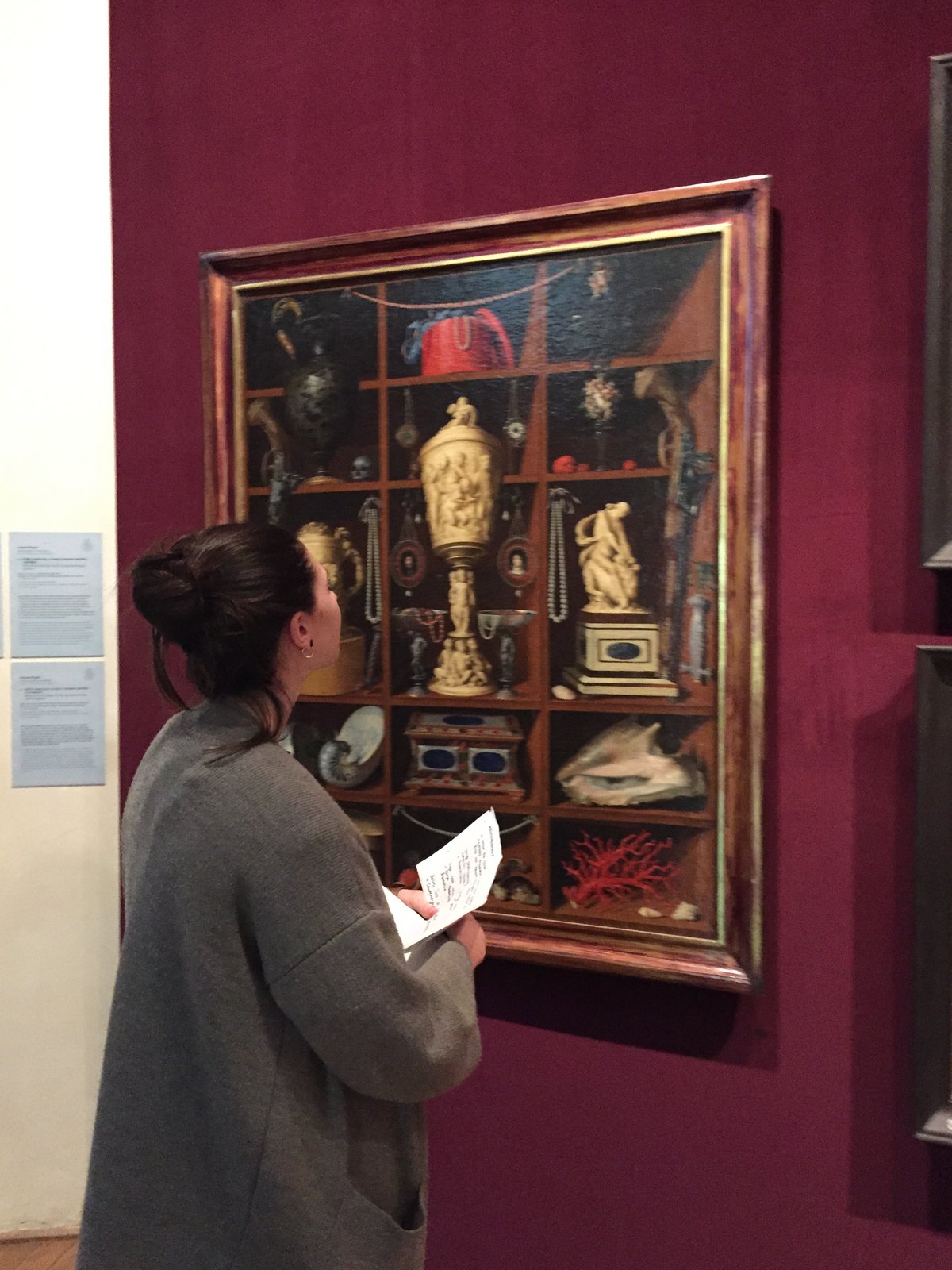
THE PROJECT
The main objective of “Changing Frames” is to closely interweave art studies, conservation science, and art technology at the postgraduate level.
The programme aims to strengthen the practical relevance of research areas in the humanities. Simultaneously, it is promoting humanities research in the fields of art technology and conservation. This genuinely mutual exchange between disciplines is advanced through a combined focus on both career- and research-oriented teaching.
The doctoral study topics, which emphasize practical relevance as well as knowledge of artists' materials and techniques in their research questions, were selected to ensure both a diversity of topics and, as a result of their interdisciplinary approach, a dialogue across disciplines.
OUR PHILOSOPHY
From the start, the primary doctoral supervisors based in Konstanz and Stuttgart work closely with national and international partners who contribute their extensive practical expertise to the programme, and each of our doctoral researchers is supervised by an individual team during the entire doctoral phase. These partners are connected to us in a loose personal and institutional network with an especially keen interest in connecting the relevant disciplines. Building bridges between the natural sciences and the humanities depends on the idea of close cooperation that we can only implement by combining our efforts to motivate exchange and collaboration between the individual partners. At the same time, our transdisciplinary programme connects individual, heterogeneous doctoral projects that give priority to practical relevance and material knowledge and therefore require close supervision from all three fields – art history, conservation science and art technology. Many of our partners have worked together in the past, which helps sustain existing connections between our research locations across large distances and guarantees the friendly exchange of expertise and collaboration in the Graduate Research Programme. In the long term, we are aiming to invite additional national and international partners to work with us; our Graduate Research Programme is built around a generally open structure that is designed to expand as needed.

PROFESSIONAL QUALIFICATION
Our Graduate Research Programme "Changing Frames" qualifies doctoral researchers on multiple levels, preparing them for a varied and continuously changing labour market in the field of art and culture. At the heart of our academic training are transdisciplinary questions that draw on art history, conservation science and art technology while also being oriented towards the study of individual objects. By combining study contents that, in the German higher education system, are typically taught separately, our doctoral candidates are put in a position to discover new research areas, which will, eventually, turn them into sought-after researchers in their field. The Graduate Research Programme’s required practical components also pave the way to a career in established non-academic professions. While traditionally trained art historians tend to experience difficulties in non-academic professions due to missing practical and material knowledge, our graduates are able to make use of their dual qualification right from the start.
In the past years, the demand for academically trained experts who are also highly skilled in dealing with objects has risen continuously. We meet the demands of the labour market in our required elective modules, which enable our students to earn additional qualifications in the areas of visualization/digitization, art law or project management. To provide targeted qualifications, we will continuously observe ongoing labour market developments in the fields of art history, conservation and cultural studies and discuss them during our annual conferences and workshops.
Learning new methodologies is another key concern in our training programme. In the Graduate Research Programme, we systematically encourage our doctoral researchers to participate in a transdisciplinary dialogue that goes beyond their individual doctoral projects and to earn transferable skills that will invigorate their future careers.
